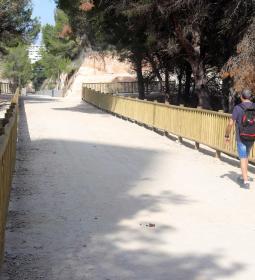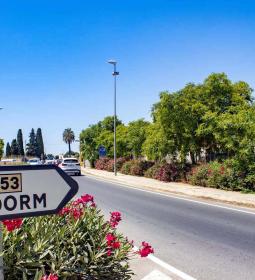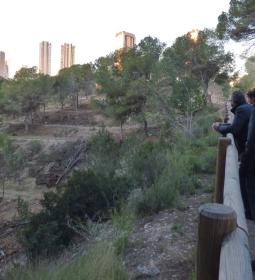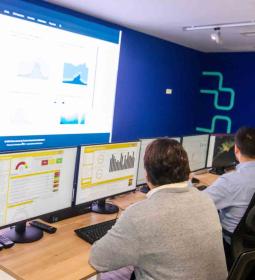The budget amounts to 385,000 euros, financed by European Next Generation funds within the 2022 Sustainable Tourism Destination Plan
Benidorm approves the project to implement the reclaimed water network in Poniente

The Local Government Board of Benidorm City Council has approved the project for the implementation of the reclaimed water network in the western area, Phase I, specifically in the area surrounding the Racharell ravine. The same agreement also approved the start of the administrative process for the contracting of the works included in the project, as well as the continuation of the successive phases of the development of the reclaimed water network based on the objectives defined in the City Council's Reclaimed Water Master Plan.
The project budget amounts to €384,999.95, and the works will be financed through Next Generation funds, within the framework of the 2022 Destination Tourism Sustainability Plan, with express inclusion in Action 2B of Axis 1 - Green and Sustainable Transition.
Current legislation establishes that city councils in cities with more than 50,000 inhabitants are required to develop plans that promote the reuse of water for urban purposes. Thus, the Councilor for Water Cycle, José Ramón González de Zárate, explained that Benidorm City Council "has begun drafting a Reclaimed Water Master Plan and has installed various supply points and sections of reclaimed water pipelines in several areas of the municipality, as part of the work we have carried out on public roads to renew hydraulic infrastructure."
In this regard, urban developments in Poniente have already included specific pipelines for reclaimed water, although these are still awaiting connection to the main pipeline that links them to the region's general reuse infrastructure, supplied by the Benidorm WWTP.
The project approved by the Governing Board aims to execute the first phase of the main reclaimed water network for irrigating parks and gardens around the Racharell ravine, with an estimated potential demand of 6,300 homes, 156,000 square meters of public green areas, and 127,000 of private green areas.
González de Zárate emphasised that the implementation of this reclaimed water network "will make an important contribution to the environmental sustainability of the municipality by reducing pressure on drinking water resources and allowing its use in non-potable urban applications, such as irrigating green areas and other landscape and public service uses."




